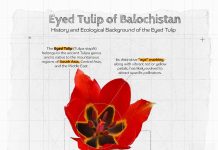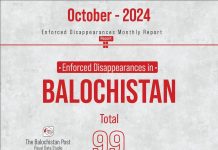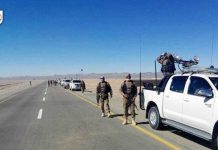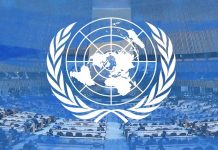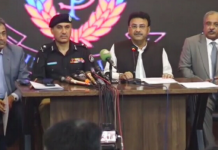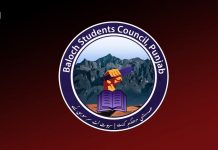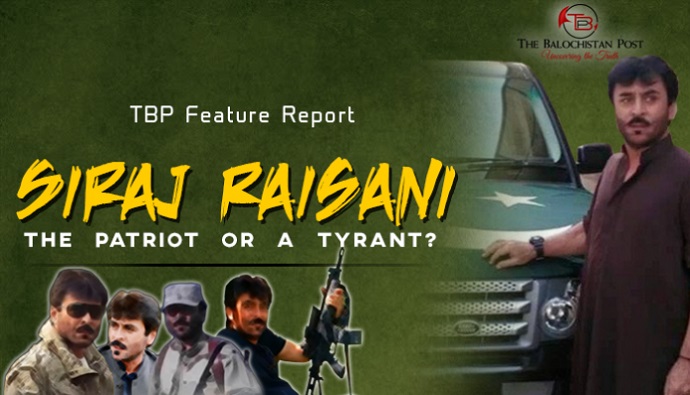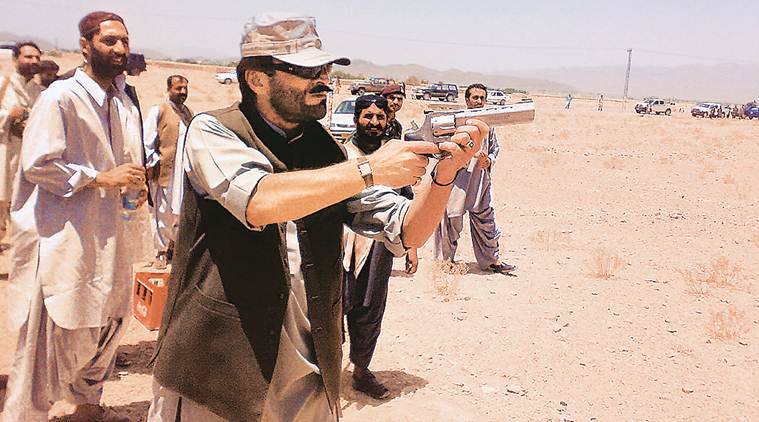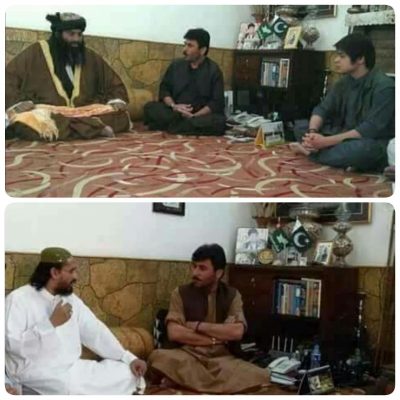Siraj Raisani – the patriot or a tyrant?
The Balochistan Feature Report
Miran Mazar – Chief Editor TBP
On a cold night of a January, armed men barged into house in a cul-de-sec and within minutes an elderly man was taken out of the house. He was forced onto his knees and a bullet was fired in his temple. The old man dropped on his face and blood gushed onto his beard. No questions were asked and the elderly man was not told any of his crimes. The cold summary execution lasted for few minutes only. The armed men jumped back into their vehicles and disappeared in the dead of night, leaving behind only the thick smoke of SUVs, a bleeding body and a family wretched for eternity.
This is not a scene from a film made on Nazi era, but these are real events that happened in January 2011 in a town of Balochistan. Balochistan Tehreek e Nifaz-e-Aman took responsibility for this act of their ‘brave holy warriors’.
This Tehreek e Nifaz-e-Aman was widely attributed to Siraj Raisani, of which he reportedly himself had also bloated about in many tribal meetings. Fast forward the cold night of January for seven years and six months, the ‘Peera’ of brave holy warriors was violently taken out by another bunch of holy warriors. In the war of titans, the innocent families had to suffer again, the wretched families this time numbered in hundreds.
The question then arises why Pakistan’s Army Chief would fly all the way from GHQ in Rawalpindi to war-struck Balochistan to attend an alleged killer’s funeral? Why would the ‘head of holy warriors’ become Siraj Raisani – the patriot? The Balochistan Post will answer the questions in this detailed investigative report.
Siraj opened eyes in Mehr Garh, Balochistan 55 years ago in the ‘superior’ most family of Raisani tribe. Violence was to become part of rest of his life – a normal standard for such patriarchal tribal families.
Siraj’s first encounter with the death was at a very young age. During general elections of 1988, men from Raisani tribe clashed with members of Rind tribe in a polling station in Kot Raisani near Mehr Garh. 7 men from Rind tribe were killed. Soon after, Rinds avenged their loss by killing Siraj’s father Ghous Baksh Raisani, a federal minister and head of Raisani tribe. Siraj himself, along with his brothers, was badly injured in the attack.
The Rind and Raisani war, which later also engulfed Bugti tribe, has since consumed hundreds of lives, including that of Siraj’s brother Mir Ismaeel Khan Raisani.
In 1990s Siraj once again brushed with the death, when he was badly injured in an attack by tribal rivals.
Though Siraj even studied for some time in Netherlands, but the machismo, the tribal enmities and the sense of impunity led him to a life of crime and violence until the day his life ended violently.
It all started with petty crimes. In 1990s and early 2000s, all bicycle thefts in Quetta’s Sariab road and Brewary road led to Raisani brothers and their group of ruffians. This was also the time when Balochistan, particularly Quetta, was overwhelmed with Afghan migrant influx. Siraj spotted an opportunity. The Afghans badly needed a source of income, so they started small businesses, mainly selling vegetables, beef and opening Kabadi (used cloths) shops in Burma Hotel, Killi Bangulzai, Moosa Colony and Custom areas of Quetta.
This is a Baloch majority area in Quetta, therefore, the Afghans needed some form of protection provided by a Baloch figure. This came in form of Siraj, who in return of daily bhutha (protection money) provided security for the Afghans. Any one who would deviate from giving money in time had to bear the wrath of Siraj’s team, who would not hesitate in beating the poor shopkeepers to pulp.
Raisani family was going through hard times at this point. The head of rival tribe, Yar Mohammad Rind, was a government minister and had filed numerous charges against the Raisani brothers. Raisanis struggled financially, but the resourceful Siraj came to the rescue of family.
Out of the necessity, the ever ambitious Siraj wanted to do more. So the bicycle thefts became motorbike snatching and subsequently carjacking. Between 2004 and 2008, scores of people were killed and injured in Quetta during motorbike snatching. It was widely believed ‘Raisanis’, nom de guerre of Siraj’s alleged gang, was the culprit behind these crimes.
TBP’s investigation revealed that during this tenure thousands of cars were stolen from Quetta alone. Either These cars were disassembled to be sold as spare parts, or some ‘tribal elder’ will contact the owner of the car to graciously offer recovery of car in return of Chai Paani (ransom money). Naeem Bangulzai, whose cultus was stolen from Bibi Ziarat in Quetta, told TBP that within 3 days of theft a local Mir (tribal elder) contacted him to tell that he, through his sources, has been able to identify the thieves. But to recover the vehicle, he has to pay some Chai Paani. Naeem had to pay 150,000 PKR to recover his own car. He also had to thank Mir Saab, who in fact was involved in the whole crime.
Allegedly Siraj had devised a brilliant plan. What in fact was happening that the Raisanis had appointed local Mirs as mediators, who would loose no time in contacting the victims. They would act as going an extra mile to recover the stolen vehicles of their acquaintances, therefore, doing favors for people. But in reality they were part of the dirty game. A percentage of each Chai Paani was theirs to enjoy. This not only ensured smooth flow of the plan but also saved the Raisanis from the radar of policing as no victim would opt to report the theft to police, which meant endless trips to the non-functional Pakistani judicial courts.
But then something huge happened. In December 2007, Pakistan’s famous leader Benazir Bhutto was killed in a suicide attack. Benazir’s political party PPP gained the sympathy vote and swept the general elections, held two months after her death. The Raisani family was historically affiliated with PPP, Siraj’s father Ghaus Baksh Raisani had remained a PPP federal minister. This affiliation had continued. Siraj’s brother Aslam Raisani contested in 2008 elections on PPP ticket. PPP successfully formed government in Balochistan and Aslam Raisani was appointed the Chief Minister of the province. Later in 2009, their brother Lashkari Raisani became a senator in the Senate of Pakistan.
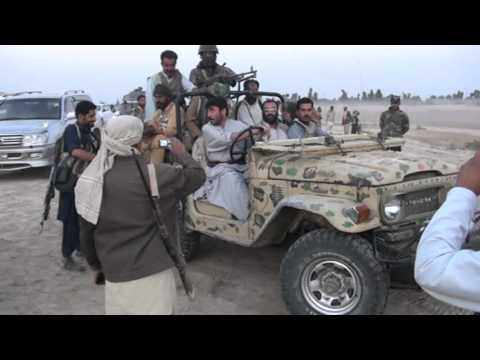
This meant grant of enormous power to the Raisani family. Aslam Raisani’s government is considered as one of the most corrupt governments in the history of the province. Pakistan’s National Accountability Bureau believes millions of dollars were embezzled during Aslam’s tenure as Chief Minister. While the Raisani brothers in the government looted the coffers of the state, Siraj was enjoying the impunity, he had never dreamed of.
Just in few months, he formed a dangerous gang that specialized in drug dealing and abductions for ransom. Not a family was left in Quetta and adjoining areas, which had not been affected by actions of this gang. The abductions for ransom skyrocketed. Almost every rich family in Balochistan at some point had a member abducted. These families dropped from riches to rags in months as all the accumulated wealth was paid to get their loved ones released.
From famous doctors to sons of bureaucrats and traders, nobody was spared. The abductions for ransom became a million dollar industry, and it was mainly controlled by Siraj Raisani. In one case, a 66 year old medical doctor’s family from Mengal tribe had to pay 50,000,000 PKR (nearly $400,000) to secure his release. Family of a government official, a resident of Sariab road Quetta, had to pay even a larger sum.
The abductions averaged in hundreds per month. A point came when even owning a slightly newer car attracted the kidnappers. Therefore, people started selling their cars and houses to avoid the unwanted costly attention.
Once again all the fingers pointed towards Siraj Raisani and his team. Not only he benefited from the crime proceeds but also increased his influence in the area. In one case he apparently mediated to secure release of a son of an influential Jamali family. He was paid in millions for his role and was also showered with praises.
However, Siraj’s operations were disturbed by another rising power, the ‘pro-independence’ armed Baloch groups. The activities of these groups were continuously increasing across Balochistan. This meant Siraj now shared a common enemy with Pakistani military, which was recruiting strong locals as part of its counter-insurgency policy. These ‘strong locals’ mostly included drug dealers or religious extremists, who were antagonized by the popularity of armed Baloch groups.
This was time when Baloch Musalah Difah Tanzeem (BMDT) of Shafeeq Mengal, Sipah-e-Shuhda, Alansar-ul-Mujahideen, Balochistan Buniyad Parast Army and many other so-called armed ‘Peace Committees’ were launched in Balochistan, apparently with backing of Pakistani intelligence agencies. Another deadly shadowy group among these ‘peacekeepers’ was Balochistan Tehreek-i-Nifaz Amn or BTNA. These groups claimed responsibility for killing many Baloch activists affiliated with pro-independence Baloch groups and political parties. Family members of activists were also targeted on many instances.
In early 2011, many suspected Siraj Raisani of heading BTNA. Apparently, he had himself claimed allegiance with the group in private tribal meetings. Social media accounts of pro-independence Baloch individuals continuously accused him of targeting Baloch activists in and around Mastung and Quetta.
Existence of torture cells, operated by BTNA, in Kanak and Direengarh were also reported.
From 2011 to 2013, BTNA and its spokesperson Ghazi Baloch, claimed responsibility for execution of many, which they claimed were members of ‘groups’ supported by RAW.
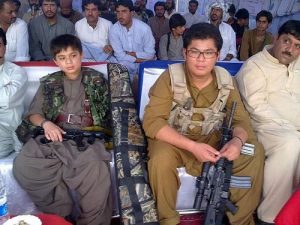
In July 2011, Balochistan Liberation Front (BLF) carried out an attack on Siraj Raisani during a football match in Mastung stadium. Siraj survived but his son Akmal Raisani was killed in the attack. Siraj vowed to take revenge and within weeks scores of pro-independence Baloch nationalists were killed in Mastung. This included four cousins, who were members of a student organisation. These cousins were abducted and within days their severely tortured dead bodies were found.
After Akmal’s death, Siraj openly opposed Baloch groups. He formed Balochistan Muttahida Mahaz as his political party. His deputies included, Fareed Raisani, Attaullah Barech, Noora Garrahri, Maula Baksh Rahijo, Shams Mengal and arms expert Majeed Raisani.
Videos of him circulated on social media, where he, along with armed people, could be seen waving Pakistani flags. In one such video, hundreds of armed persons were seen taking oath on Quran held in Siraj’s hand, while Jihadi songs played in the background. According to sources, the video was filmed before Siraj’s men went for an operation against Baloch armed groups.
Along with targeting Baloch nationalist groups, Siraj was also blamed for numerous attacks on NATO trucks in the region. It is believed he later struck a deal for safe passage of these trucks in return of hefty money.
He was also accused of forming a nexus with religious extremist groups including Lashkar-e-Jhangvi and ASWJ. Pictures of him meeting LeJ’s Ramzan Mengal & ASWJ’s Aurangzeb Farooqi were also leaked.
According to local sources, Siraj Raisani was using these sectarian groups against Shia Hazaras for an economic motive. Siraj was eyeing at lucrative land prices in Hazara town, Quetta. LeJ attacks on Shia Hazaras of this town made it easy for Siraj to acquire the properties at cheap prices.
In return LeJ was provided sanctuaries in native villages of Raisani tribe, Kanak and adjoining areas.
However, it was not long before LeJ and Siraj, both considered to in good books of Pakistani military establishment, would fall out. Territorial rivalries were to be blamed.
Some analysts suggest another reason behind the discord between LeJ and Siraj. In 2011, a bus, carrying Shia pilgrims, was attacked by LeJ near Mastung. 26 people died in the attack. Reportedly, the attackers escaped to their bases in Kanak. Siraj suffered enormous pressure because of this attack and finally had to ask LeJ to vacate the area.
LeJ then formed its base in a religious seminary in Kandava, another area near Mastung. However, soon security forces raided the seminary and 7 members of LeJ were killed. LeJ blamed Siraj Raisani for the raid.
These relations further deteriorated when a member of LeJ was killed by Frontier Crops (FC) near Koshkak. Reportedly, Muneer Raisani, a close aide of Siraj Raisani, tied the corpse of LeJ member behind his vehicle and dragged it in the streets. Muneer was later killed by LeJ.
Another close aide of Siraj Raisani in Kandava, Master Qudoos, was also killed by LeJ.
Whereas, many members of his group were killed by Baloch nationalist groups. Attaullah Barech, a lieutenant of Siraj, was killed in Mastung by Balochistan Liberation Front.
While many pro-military armed groups were disbanded or the military was no longer able to control them, Siraj Raisani and his group continued to operate under close supervision of military establishment. Analysts believe this was one of the main reasons Siraj Raisani remained in good books of the state.
When ISIS was launched in the region, many LeJ members joined it. ISIS carried out many suicide attacks in Balochistan. In one such suicide attack, Siraj Raisani was targeted by ISIS on 13 July 2018 in Direengarh. More than 150 others were also killed in this attack.
Siraj Raisani was given a state funeral, and many senior military and civil officials, including governors and the Chief of Army Staff, attended his funeral.
Local politicians and analysts consider the whole situation very bizarre and dangerous. ‘If a person, who has been involved in so many crimes, can obtain a clean chit by only supporting the military and carrying out their dirty tasks, then sets a very dangerous precedent. The harmful implications of such madness will continue for years,’ a Baloch observer told TBP on condition of anonymity.

